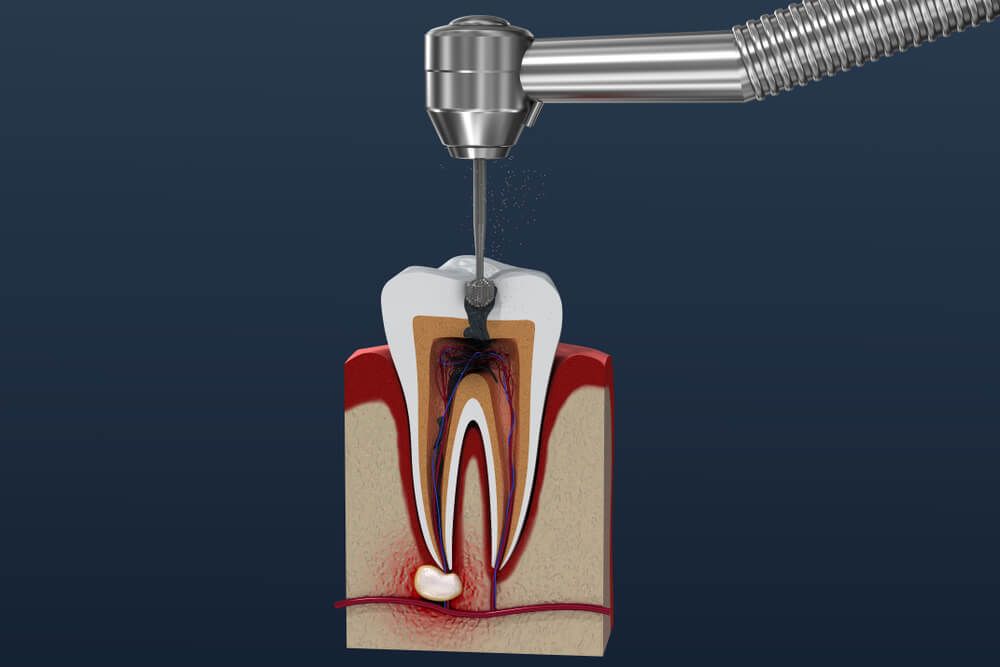Root canal treatment is an endodontic procedure used to clear infected pulp away from the pulp chambers and canals of a diseased tooth. Infections occur when bacteria are allowed to enter the pulp – often due to untreated decay or a crack in the tooth. During a root canal, the tooth is opened and the pulp removed. Biocompatible resin is used to fill the tooth before it is restored with a crown or other restoration.
Did you know…
that while most infected teeth are easily identified by the symptoms they cause, some produce no discomfort at all? It is important to visit your dentist regularly for routine exams that may reveal diseased teeth that would otherwise go unnoticed. Failure to treat an infected tooth could result in an abscess or even the need for an extraction.
Frequently Asked Questions:
Do I need root canal treatment?
You may need a root canal if tooth decay or a broken tooth has allowed the pulp to become infected and inflamed. Signs and symptoms to watch out for include temperature sensitivity, swelling, drainage, odor, pain, and discoloration of the tooth. It is important to treat infections quickly, as delaying treatment can result in severe tooth pain and abscess.
What should I expect to happen during my root canal?
Your endodontist will administer a local anesthetic. Once the tooth is numb, an opening will be made in the top of your tooth to access the canals. Your endodontist will use tiny instruments to remove pulp from your tooth and prepare it to be filled. Depending on the stage of an infection, treatment could take more than one appointment. Upon completion of root canal therapy, you will return within a month to your General Dentist to have your root canal tooth restored with a crown or other type of restoration that will give it the appearance and function of a natural tooth.
Will I need to follow any post-operative instructions following my root canal treatment?
You will be able to drive yourself home from your root canal visit and may even wish to return to work the same day. However, it is normal for your tooth to be sensitive in the days following your procedure. You’ll need to avoid biting anything with your filled tooth, as this can cause it to break or fracture. Also, taking anti-inflammatory medication, such as Tylenol or Ibuprofen will help the healing process.

